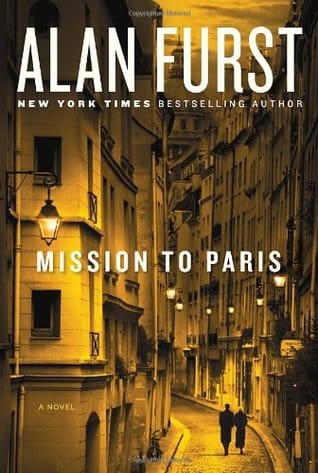Mission to Paris (Night Soldiers, #12) - a review 📚

This was my first Alan Furst novel. I tried reading one before (Night Soldiers) and only was able to make it through a portion because it was, well, boring and not my thing. I kept reading good reviews of his novels though and decided to give the latest in the “Night Soldiers” series a go.
Good choice. Furst is a fantastic writer and one of the few (Stephen King and J. K. Rowling do the same) that I’ve read that writes in a such a way you get a clear vision in your mind of what he is writing about. You can actually see the scenes he’s painting with words.
Set on the eve of the start of World War II the book follows an actor, Frederic Stahl, on a trip to France to make a film for Paramount. One of the things that struck me about this novel is how great Furst is at generating emotion. The book is very good at giving a sense of foreboding over the coming war and fall of France. You get a very palpable sense of the storm that is coming to Europe. I always had a sense of unease while reading as if I was living in that time and experiencing things with Stahl.
Furst is also very good at dialog. It feels very authentic and real. I also found it interesting the heavy use of italics to help impart certain meaning and emotion to the words. I have not seen this used quite as heavily by other authors but it really gives a wonderful sense of the sub context going on under what is being said.
And the guy just has a way of turning a phrase. Here is an example:
They lay together on a deck chair, she in formal gown, he in tuxedo, the warmth of her body welcome on the chilly night, the soft weight of her breast, resting gently against him, a promise that wouldn't be kept but a sweet promise just the same.
The one thing I didn’t like was the overuse of sexual situations in the story. I’m no prude but the guy goes a bit overboard with the descriptions. If I wanted a romance novel I’d read one. This stuff doesn’t belong in a period spy novel. I felt the same way about the “Foundation” series by Isaac Asimov. The first novels, written in the 1950’s, were pure hard sci-fi. The later novels had far too much sex and it just didn’t fit.
Mission to Paris was a good read. Enjoyable characters and fantastic writing. What isn’t there to like?